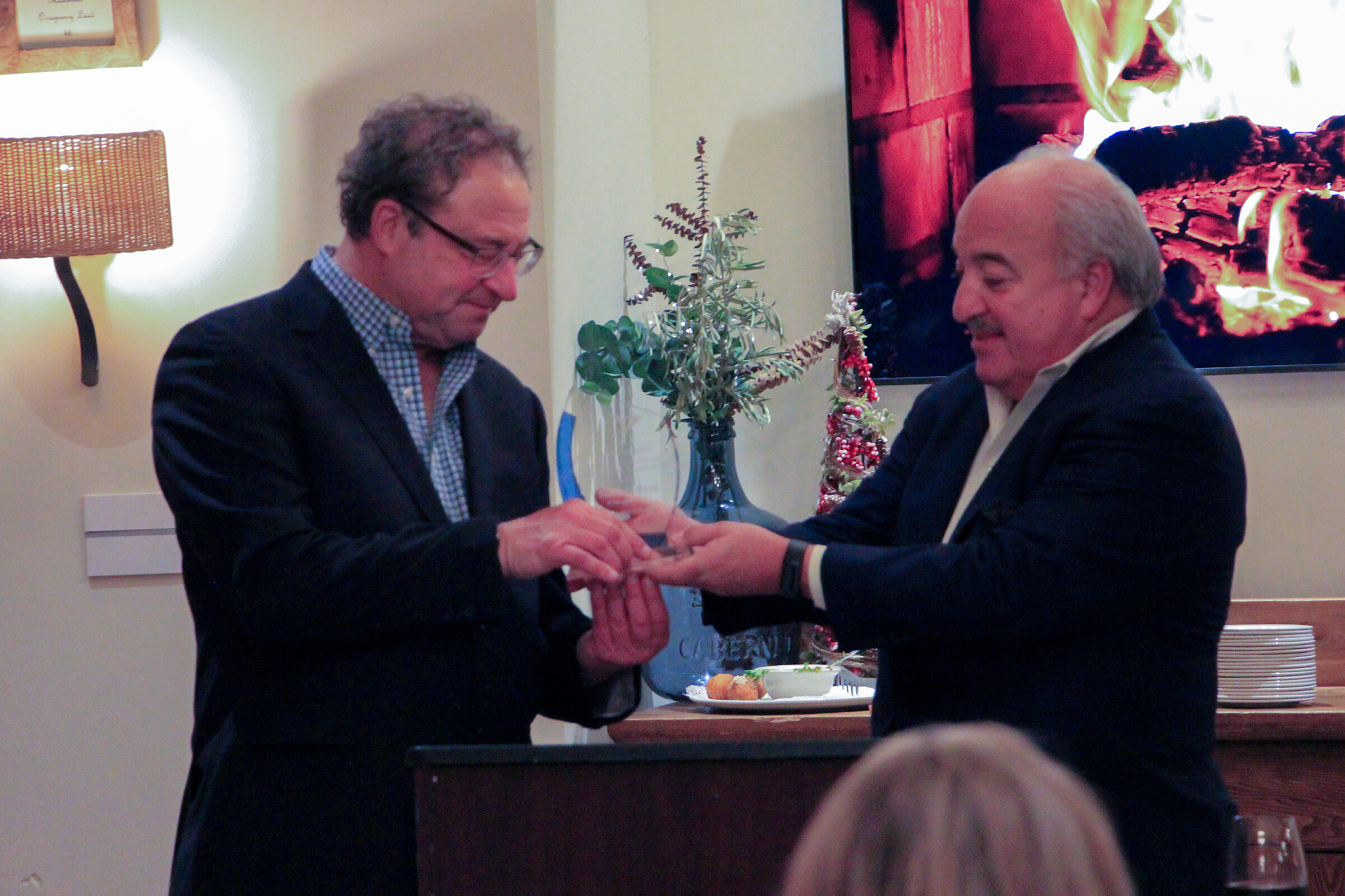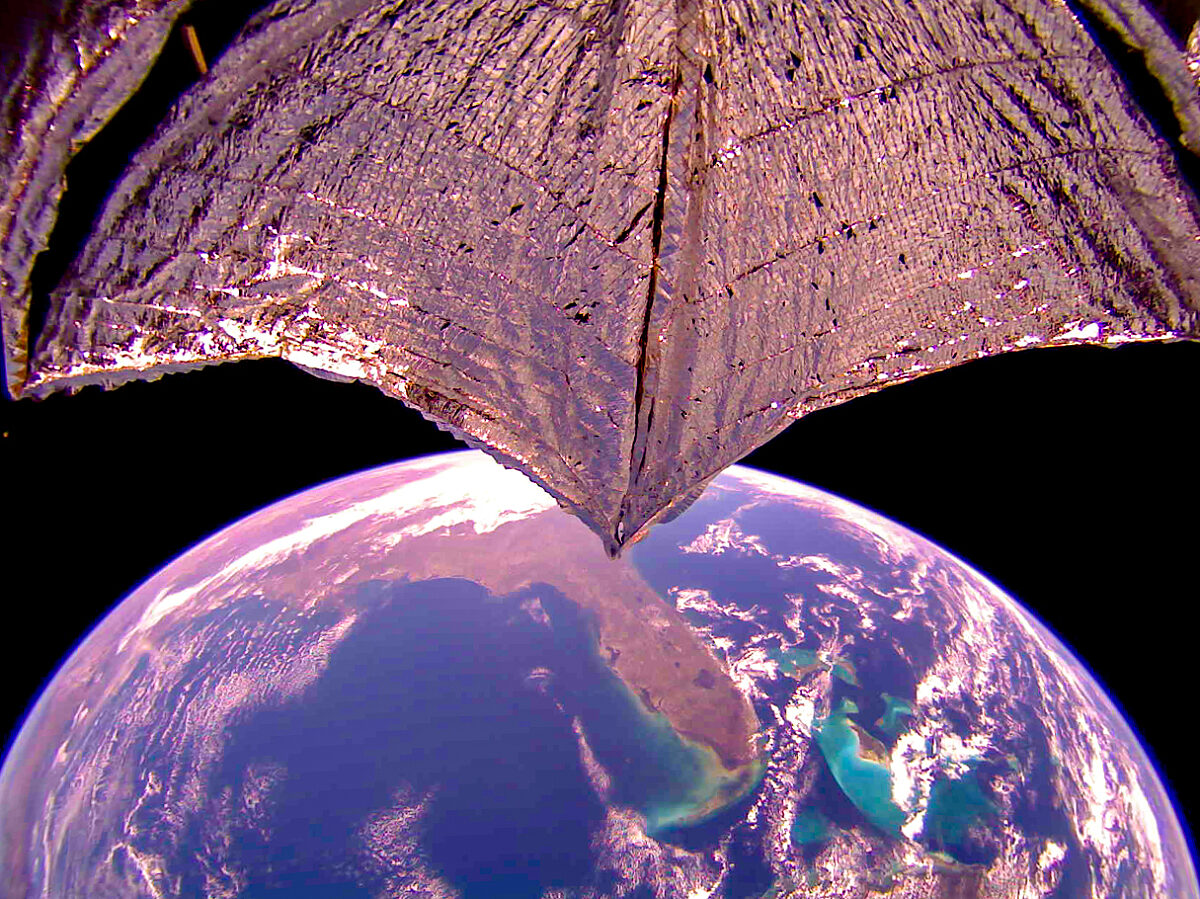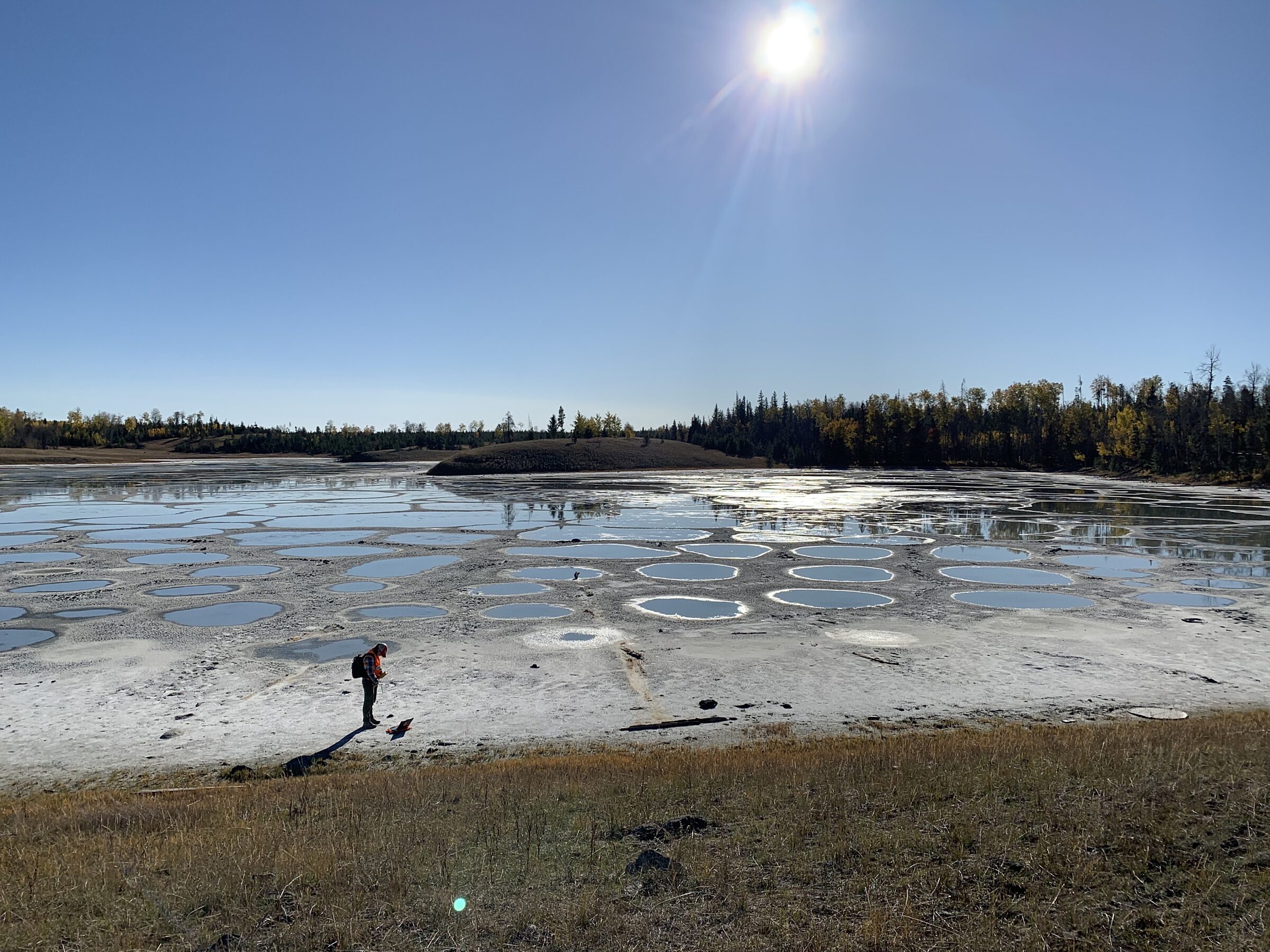Your impact: March equinox 2024
Announcing the first C. Wallace Hooser award for visionary philanthropy
The Planetary Society is pleased to announce the C. Wallace Hooser Award for Visionary Philanthropy and its first recipient, Mark Gelfand.
The award is named in memory of longtime board member and friend Wally Hooser, who believed that The Planetary Society represented a long-term investment in humanity. Wally felt that it was vital to explore the Cosmos and realize our place in space while also protecting our species from tangible threats, like hazardous asteroids and comets.
A decade ago, Wally challenged the board and staff to build a more fiscally sustainable Planetary Society. He infused the organization with self-confidence that helped it grow into what it is today.
As Wally was battling the illness that would eventually take him, we established the C. Wallace Hooser Award for Visionary Philanthropy in his name. Award candidates must have a track record of exceptional generosity and commitment to the promotion of space science, exploration, and education. They must demonstrate outstanding civic responsibility and encourage others to take philanthropic leadership roles. Finally, they must share their time, talent, and treasure in a manner consistent with the example set forth by Wally Hooser.
Wally passed away in 2021. We miss him dearly, yet his legacy with The Planetary Society lives on thanks to his generosity, his kind spirit, and this new award to honor those who follow in his footsteps.

We are pleased to announce that Mark Gelfand is the first recipient of the C. Wallace Hooser Award for Visionary Philanthropy. Inspired by the space race of the 1960s, Mark has always been interested in technology and how things work. He received a degree in physics and went on to work in finance, awed by the mathematical similarities between thermodynamics and financial markets.
Mark joined The Planetary Society in 1998. He has given generously to the organization over the years, supporting ambitious technology projects such as solar sailing and a mission to send microorganisms on a round-trip mission to the Martian moon Phobos.
“The Planetary Society deals with things that are accessible, if not today, soon — within a decade or two,” he said.
Mark is passionate about the power of STEM (science, technology, engineering, and math) education. He is the founder and president of STEMpower, an organization that has established more than 110 STEM centers across sub-Saharan Africa. The organization provides enrichment centers and hands-on labs that encourage pre-university students to pursue STEM careers.
It’s challenging work, and Mark said that STEMpower’s track record of getting things done is similar to that of The Planetary Society. “We do what is practical and doable,” he said. “We don’t dream of things; we do things.”
With his trademark humility, Mark said that he was honored to receive the award and noted that much of the credit goes to his STEMpower staff. “It’s all a wonderful honor. I’m glad people are realizing that they see some value in this and what we’re doing,” he said.
The Planetary Society sees great value in how Mark is changing the world, and we’re pleased to bestow this honor. Wally would be proud.
Fundraising success
Planetary Society members rallied together to support several important campaigns in late 2023.
Last autumn, members raised over $80,000 for the LightSail program’s ongoing work. These funds will allow The Planetary Society to broaden the possibilities of solar sailing by sharing the remarkable story of LightSail with scientists, engineers, and space enthusiasts around the world. This includes publishing a book about the program; disseminating our findings in scientific journals and at conferences; and building a master archive of all the mission data to share with engineers, scientists, and future missions.
And in our annual year-end fundraising drive, members came together to raise over $200,000, unlocking an additional $20,000 in matching funds from generous members of our board of directors on #GivingTuesday. Plus, we unlocked $100,000 in additional matching funds thanks to a generous Society member. These funds will help us continue all of our work through 2024 and beyond.
Thank you for your support!

The planetary caucus is back
Following a two-year hiatus,
the Congressional Planetary Science Caucus has officially been
rechartered in the 118th Congress thanks to the leadership of the caucus
co-chairs: Reps. Don Bacon (R-Nebraska) and Judy Chu (D-California).
This bipartisan effort will offer a venue for members of Congress to
rally in support of space science, research, and exploration.
The
Congressional Planetary Science Caucus was originally founded in 2018
and existed through the end of the 116th Congress (January 2021). The
Planetary Society worked closely with Reps. Bacon and Chu to reorganize
the caucus for the 118th Congress.
According to the caucus’s official charter, its goals are to:
- Support government agencies, commercial partners, academic institutions, and nonprofits in the research and exploration of space.
- Bolster efforts by space organizations to find, track, characterize, and mitigate the threat of potentially hazardous near-Earth objects.
- Facilitate the search for life in our Solar System and beyond, answering the fundamental question, “Are we alone in the Universe?”
- Raise awareness of the economic benefits of federal investments in space science, technology development, and STEM education.
Thanks to strong financial support from our members and thousands of small donors, the Society’s Space Policy & Advocacy program has grown in size and capability over the past few years. We used this expanded in-house expertise to work closely with a bipartisan group of lawmakers to assist them in putting together the caucus, and we will provide ongoing support and outreach to the public and the scientific community.
STEP Grant update: Studying salty lakes as planetary analogs
One of the winning projects from the 2023 round of STEP (Science and Technology Empowered by the Public) Grants is a multiyear study of salty lakes on Earth that share characteristics with the past and present oceans of other planets and moons. Dr. Jacob Buffo of Dartmouth College, who is leading the project, gave us an update on the first field trip his team took to British Columbia’s Cariboo Plateau in Canada to study small, extremely salty lakes there. This trip was made possible thanks to the support of The Planetary Society’s member-funded STEP Grants.
“One of the highlights of the trip was getting to work with such a multidisciplinary group of scientists up there,” said Buffo, “and for them to get to meet each other and try to figure out all the puzzling aspects of these lake systems together.” Buffo’s team is very diverse, including specializations in remote sensing, geochemistry, astrobiology, planetary analog systems, biogeochemistry, geobiology, planetary science, and geophysics.
Another exciting outcome of the trip was gaining experience collaborating with drone operators from the University of New Hampshire who were doing complementary work gathering hyperspectral drone imagery of the lake sites. Buffo’s team will now match what they see in the aerial drone data with the biochemical and geochemical data they’re collecting on the ground. This could test strategies for using planetary exploration drones, like Ingenuity, to scope out landscapes on other worlds to select targets for astrobiological study by rovers or even human explorers.
“These lakes continue to surprise us each time we go up there,” said Buffo. The STEP Grant funds will support several more field trips for Buffo and his team, helping to advance this exciting field of planetary analog research.

Read our full annual impact report
Learn more about the important work your membership made possible in 2023 by reading our annual impact report. You can find it at planetary.org/2023impact.
Support our core enterprises
Your support powers our mission to explore worlds, find life, and defend Earth. You make all the difference when you make a gift. Give today!
DonateThe Planetary Report • March Equinox
Help advance space science and exploration! Become a member of The Planetary Society and you'll receive the full PDF and print versions of The Planetary Report.


 Explore Worlds
Explore Worlds Find Life
Find Life Defend Earth
Defend Earth



